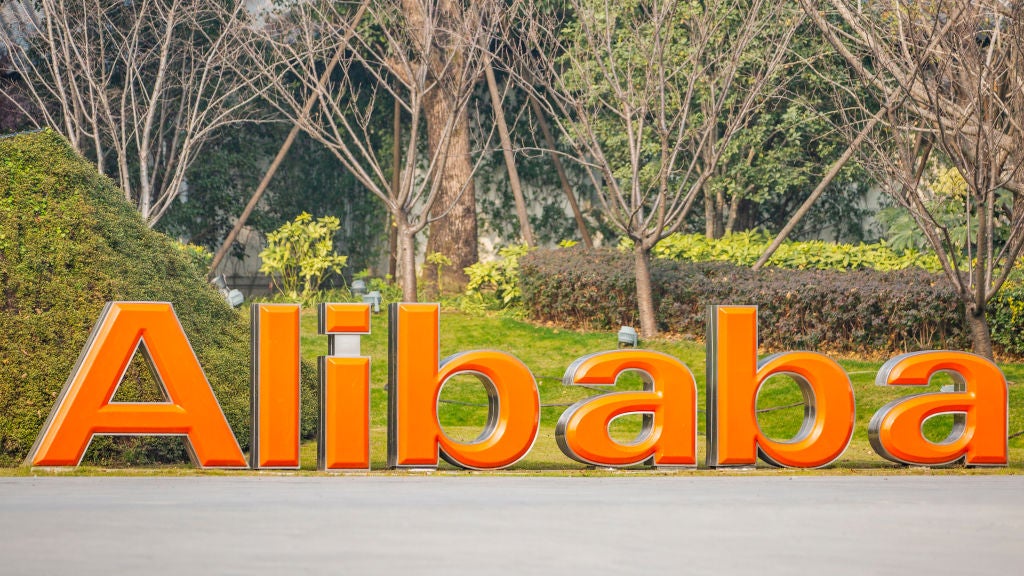
Ecommerce giant Alibaba is leading a consortium that might bail out Tsinghua Unigroup, a once-promising Chinese semiconductor developer that has been burdened by towering debts. If the deal goes through, Tsinghua could receive over 50bn yuan (US$7.8bn) to stay afloat. The strategic importance of Tsinghua Unigroup is significant against the backdrop of an ongoing global chip shortage, Chinese endeavours to become tech self-sufficient and the intensifying tech trade war between Beijing and Washington.
The central government is reportedly leaning towards the Alibaba-led offer, given the ecommerce giant’s financial capabilities, Bloomberg reported citing people familiar with the matter. A takeover of Tsinghua Unigroup could also prove beneficial for Alibaba’s own cloud and semiconductor businesses.
The consortium will include funds backed by the Zhejiang municipal government and appears to be favoured over several competitors also bidding to take over Beijing-based Unigroup.
Other state-backed companies looking to buy Tsinghua include semiconductor investment fund JAC Capital, Wuxi Industry Development Group and Beijing Electronics Holdings, according to the Bloomberg report.
Verdict has previously explained Tsinghua Unigroup’s debt problem and its call for funds to bail the company out. In July, it put out a statement saying that it was looking for private investors with cloud computing and semiconductor expertise to ease its 200bn yuan (US$30.8bn) debt.
According to the statement, any potential investor is required to have 50bn yuan (US$7.7bn) in minimum total assets in the past year or possess 20bn yuan (US$3bn) in minimum net assets.
How well do you really know your competitors?
Access the most comprehensive Company Profiles on the market, powered by GlobalData. Save hours of research. Gain competitive edge.

Thank you!
Your download email will arrive shortly
Not ready to buy yet? Download a free sample
We are confident about the unique quality of our Company Profiles. However, we want you to make the most beneficial decision for your business, so we offer a free sample that you can download by submitting the below form
By GlobalData“The strategic investors should have operational capability and managerial experience in semiconductor and cloud businesses,” the group added. “They must be able to promote the development of our core businesses.”
Tsinghua Unigroup’s cloud business would be particularly advantageous to Alibaba, which has indicated ambitious plans to become a global cloud service provider.
In May this year, the president of Alibaba’s cloud unit, Zhang Jianfeng, said:
“If we could win the business of Tsinghua Unigroup, which has a profound reach in the government cloud market, it would undoubtedly strengthen Alibaba Cloud’s competitiveness.”
Tsinghua’s semiconductor portfolio, on the other hand, is rather modest. Instead, it is better described as a semiconductor holding company rather than a known innovator. The Beijing-based company has a total of 286 subsidiaries, making it one of the country’s largest tech conglomerates.
Alibaba is best known as an ecommerce behemoth. However, recently the company has made several announcements showcasing its prowess in other tech areas, including semiconductors, cloud computing and artificial intelligence (AI).
“[Alibaba] is already building an impressive chip operation of its own and Tsinghua would be a ‘white elephant’ with an unimpressive chip portfolio of its own and debt in the billions to handle. But helping Beijing would have obvious political benefits for Alibaba,” Michael Orme, senior analyst at GlobalData and China specialist, tells Verdict.
Alibaba’s bailout of Tsinghua Unigroup would certainly put the ecommerce giant in a more favourable position with the Chinese government, who slapped the company with a record US$2.8bn fine for monopolistic practices in May. Its increased focus on upstream technological innovation, such as chip designs and AI – areas that have become a priority for Chinese President Xi Jinping – is boosting Alibaba’s standing with the government.
The company recently had a breakthrough in its semiconductor business, unveiling the Yitian 710 server chip, which will boost its cloud endeavours.
Experts said that Alibaba’s server chip is among the most advanced by a Chinese firm yet. However, given the lack of semiconductor foundries in China and the US stranglehold on global movements of chipmaking technology, Alibaba may run into trouble actually manufacturing its designs.
Separately, Alibaba-backed research institute, Damo Academy, revealed a “Multi-Modality to Multi-Modality Multitask Mega-transformer” (M6) AI model that is currently the world’s largest AI pre-training model.
“With its high-octane Damo Academy operation, progress in semiconductors, latest 5nm server processor, GPT3 like language and image predictor breakthrough and hefty research into quantum technology, [Alibaba] is front and centre of Beijing’s foundational tech development drive,” says Orme.
Given its advances in cutting-edge technology, it is likely that the Chinese government will ease the regulatory crackdown against Alibaba, Orme predicts.
“Beijing needs Alibaba big time,” he adds.
Tsinghua Unigroup was founded in 1988 by Tsinghua Holdings, an affiliate of China’s prestigious Tsinghua University. Laden with state and political backing, the group was once a promising semiconductor researcher. In 2015, it made headlines when it revealed plans to buy the American chipmaker Micron in a colossal US$23bn bid.
Since then, however, it has not presented any substantial chip breakthroughs. The company’s CEO, Zhao Weiguo, who himself also graduated from Tsinghua University, is a well-known real estate mogul who has reportedly initiated a wave of debt-fuelled expansions in numerous tech-related and non-tech-related industries, with limited success.
The semiconductor war continues
Meanwhile, China is also moving forward with its plans to become chip self-sufficient. Given the current surge in demand for semiconductors, Chinese chipmakers have been forced to choose between clients.
Hua Hong Semiconductor, China’s second-largest contract chipmaker, has reportedly told several international clients – including Taiwan’s Holtek, a key developer of microcontroller semiconductors – that it would not be able to supply them with as much capacity as needed, Nikkei Asia reported.
An executive at Holtek told the newspaper that Hua Hong said it could not guarantee more production capacity in 2022 than it had in 2021 for the Taiwanese client, citing China’s national policy of prioritising production needs for domestic chip designers.
Given the rising tension with the US, China is keen to ramp up its domestic chipmaking capabilities. Meanwhile, the US is doing everything it can to keep key technology and talent out of China.
In the latest development, SK Hynix is seeing its plans to overhaul a large facility in China, intended to streamline the production of memory chips, thwarted due to US pressure.
The South Korean company is the world’s biggest supplier of dynamic random-access memory (DRAM) chips and has a large facility in the eastern Chinese city of Wuxi. SK Hynix reportedly wants to update the factory with some of the latest extreme ultraviolet photolithography (EUV) machines – essential equipment necessary to produce cutting-edge semiconductors – produced only by Dutch company ASML.
The US government has been adamant about keeping this key equipment out of China and is now trying to block the deal as part of the ongoing tug-of-war between Beijing and Washington, Reuters reported, citing people familiar with the matter.
In another instance, semiconductor giant Intel has put plans on hold to take over an abandoned joint-venture factory of GlobalFoundries in the central Chinese city of Chengdu, according to Bloomberg, which cites sources familiar with the deal.
The plan was intended to accelerate the capacity of Intel’s expansion in the Chinese semiconductor industry. However, it was reportedly rejected by the White House due to security concerns.







